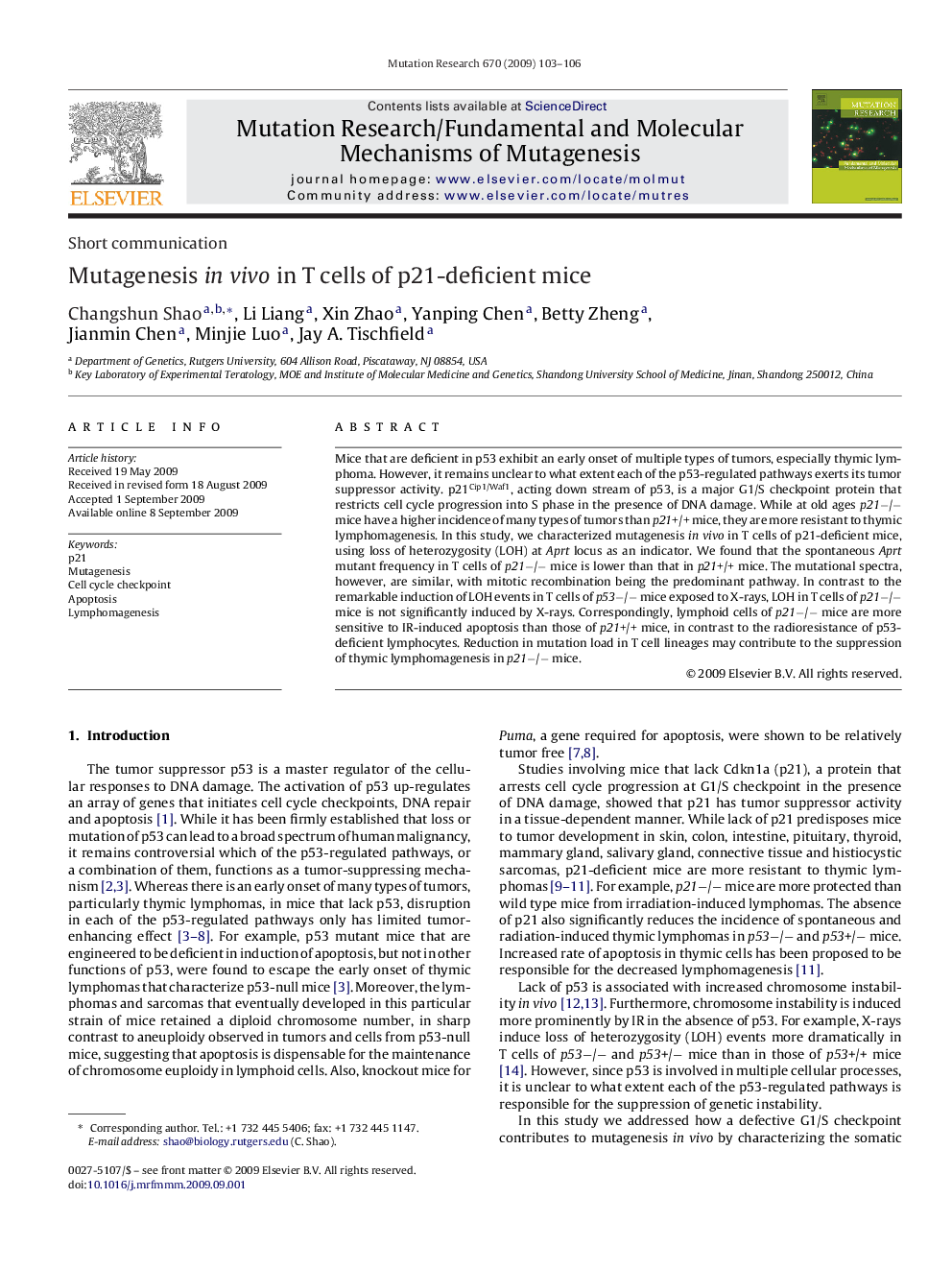| Article ID | Journal | Published Year | Pages | File Type |
|---|---|---|---|---|
| 2146904 | Mutation Research/Fundamental and Molecular Mechanisms of Mutagenesis | 2009 | 4 Pages |
Mice that are deficient in p53 exhibit an early onset of multiple types of tumors, especially thymic lymphoma. However, it remains unclear to what extent each of the p53-regulated pathways exerts its tumor suppressor activity. p21Cip1/Waf1, acting down stream of p53, is a major G1/S checkpoint protein that restricts cell cycle progression into S phase in the presence of DNA damage. While at old ages p21−/− mice have a higher incidence of many types of tumors than p21+/+ mice, they are more resistant to thymic lymphomagenesis. In this study, we characterized mutagenesis in vivo in T cells of p21-deficient mice, using loss of heterozygosity (LOH) at Aprt locus as an indicator. We found that the spontaneous Aprt mutant frequency in T cells of p21−/− mice is lower than that in p21+/+ mice. The mutational spectra, however, are similar, with mitotic recombination being the predominant pathway. In contrast to the remarkable induction of LOH events in T cells of p53−/− mice exposed to X-rays, LOH in T cells of p21−/− mice is not significantly induced by X-rays. Correspondingly, lymphoid cells of p21−/− mice are more sensitive to IR-induced apoptosis than those of p21+/+ mice, in contrast to the radioresistance of p53-deficient lymphocytes. Reduction in mutation load in T cell lineages may contribute to the suppression of thymic lymphomagenesis in p21−/− mice.
